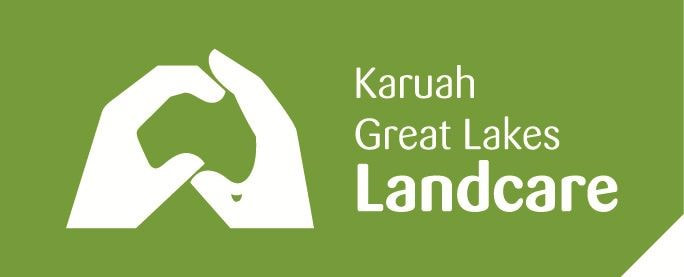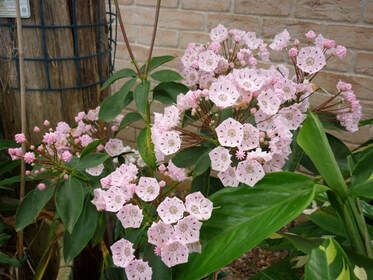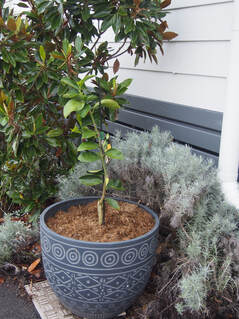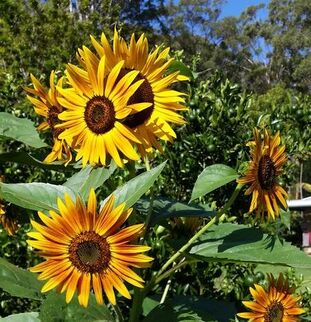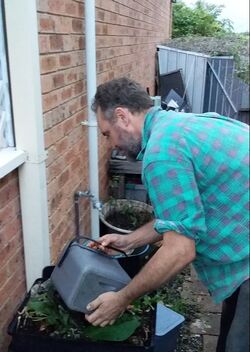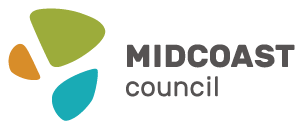Growers are an asset to the MidCoast region - Midcoast Growers Network connects, inspires, and supports them
The MidCoast is a vast and diverse region, ranging from Coastal influences to the Barrington Tops. The varying micro-climates and weather patterns found here can be confusing for those trying to navigate site-specific information and trying to obtain the right growing resources for their location. Our Network aims to connect, inform, and ultimately empower growers via the sharing of local research, knowledge, experiences and demonstrations.
The MidCoast is a vast and diverse region, ranging from Coastal influences to the Barrington Tops. The varying micro-climates and weather patterns found here can be confusing for those trying to navigate site-specific information and trying to obtain the right growing resources for their location. Our Network aims to connect, inform, and ultimately empower growers via the sharing of local research, knowledge, experiences and demonstrations.
Outcomes of sharing this local knowledge and experience: resilient and connected growers in times of extreme events such as prolonged heatwaves, floods and bushfires; higher rates of success with gardening projects and a more productive patch; and fast-tracking first-time gardeners into empowered green-thumbs.
Membership aspires to attract those interested in any aspect of growing - from individuals to community gardens and garden clubs, from small-scale commercial growers to educators and homesteaders. Join with us, and with the wider networks of which we are part. All levels of growing experience and participation are welcomed.
Membership aspires to attract those interested in any aspect of growing - from individuals to community gardens and garden clubs, from small-scale commercial growers to educators and homesteaders. Join with us, and with the wider networks of which we are part. All levels of growing experience and participation are welcomed.
|
Read more about our origins, visions and plans in 'About us'
|
|
Karuah & Great Lakes Landcare (KGLL) is hosting the MidCoast Growers Network. We are a sub-group of KGLL.
KGLL's goal is to support landholders to protect and improve our ecological resource base and to achieve healthy, productive farms and gardens in a diverse agricultural economy. Becoming a member of Midcoast Growers Network means you become a member of KGLL and receive all the benefits of Landcare membership. |
Our Projects
Building Bushfire resilient gardens
|
Gardens represent a major financial and emotional investment for many people; and for some, their gardens are the basis of their livelihoods.
Our Network's federally-funded Building Bushfire Resilient Gardens in the Midcoast project assists Midcoast property owners directly affected by the Black Summer bushfires to redesign and rebuild their gardens, helping them with their recovery in the present, while also making their gardens, homes and outbuildings more resilient to bushfires in the future. |
You can find out more about the project here: BUSHFIRE RESILIENT GARDENS.
|
|
Downloadable resource:
Building Bushfire Resilient Gardens in Midcoast NSW (Karuah & Great Lakes Landcare and Midcoast Growers Network, 2023) |
|
Resource Hub - for fire smart gardening in the Midcoast
|
Contents:
|
|
Read online and/or download the presentation - 'Building bushfire resilience into our Midcoast gardens - Highlights from a review of the literature'
|
Feature: Small Backyard Gardens
|
New material in this edition of our website focuses on small backyard gardens. Most people on the Midcoast live in urban areas, and have the space around their houses, or on balconies in flats, to use for growing.
Every bit of space counts in these 'backyard' gardens - garden design therefore becomes an important consideration. To this end, there are some great ideas on garden design in this edition, and we will continue to provide insights on garden design as material comes to hand. |
|
Stef Garland provides useful insights for setting up a small backyard garden based on her recent experience: look around to see what's growing in the neighbourhood; use a variety of pots, containers and raised structures; plant intensely, making sure you have the best soil; and remember - there's always room for a gardener's favourites.
|
'As with any successful garden, the quality of the soil matters. We added perlite to a premium potting mix to help with aeration and drainage. In addition to bought fertilizers, I regularly top up the beds with the worm castings and liquid from our Hungry Bin worm farm.'
|
MidCoast Growers' Guide
|
The MidCoast Growers' Guide: Building Resilience to a Changing Climate is presented serially online in eight parts. The Guide provides locally relevant information and ideas to better deal with the impacts of a changing climate on gardening and small-scale food production at the local level. Local voices and experiences are highlighted.
|
Part 4 of our resource for Midcoast growers focuses on garden design. You can read more online, or download Part 4 as a printable resource.
|
Spotlight on local growers: Joël Dunn
|
Our grower in the spotlight for this edition is Joël Dunn, who lives in a hilly part of Forster and has done tremendous things with the garden around his family’s home.
Among the many insights our tour of Joël's garden provided were his approaches towards fertilisation, which can be adopted by any home gardener keen on pursuing organic methods. A key part of the garden’s design is a grey water swale-cum-mulch pit that is on the contour. The water is channeled from a tank alongside the house. The idea with this is that you’ve got carbon and fungus rich compost that treats the grey water. |
Besides the compost, fertilisation for the garden comes from three different kinds of worm farm: stackable, with proper-fitting lid; solid-bottomed, contained; and a worm farm in situ. Everything from the kitchen goes in, with the idea to give the worms a balanced diet. ‘When the compost worms are getting too abundant, I scoop a handful out and put them in the garden where there’s plenty of mulch’, Joël said, doing exactly that.
|
Join us on this visit to Joel's established, yet constantly innovative, garden in the heart of Forster.
|
|
Midcoast Growers Network brings together growers from all over the region, aiming to connect, inform and ultimately empower them through the sharing of local knowledge, experiences, demonstrations and research
|
Please share your own experiences, thoughts, insights from reading and discussion with us on the theme of garden design, including ideas for small backyard gardens
Send us your stories, tips, photos - we’d love to hear from you! email: [email protected]
Find and follow us on facebook: MidCoast Growers Network on facebook Join in the conversation - ask the question you’ve always wanted to on Growers Q&A: Growers Q&A facebook group |
|
MidCoast Council encourages residents to get involved in composting and gardening, and notes, within the context of their Scraps to Soil program:
'If you're lacking space, resources or motivation to create a garden at home, you can still keep your green thumbs by getting involved with one of the many local community gardens across the MidCoast region'. Compost hubs can be found at the community gardens listed below. You can contact them to register as a Compost Crusader, as well as for details on other ways to get involved. |
- Cundletown: Main Street (opposite the Post Office). Drop in and meet the team, phone Theo on 7903 2495 or email [email protected]
- Forster: Little Street (next to Forster Neighbourhood Centre). Drop in on a Tuesday morning, call 6555 4351 or email [email protected]
- Gloucester: Gloucester District Park, close to the Tennis Club, 0401 798 382
- Nabiac: 37 Nabiac Street (rear of Neighbourhood Centre). Email Joel at [email protected] or call him on 0401 932 533
- Taree: PCYC, 95 Commerce Street. For more information email Michelle at [email protected]
- Tuncurry: The Green at the Waste Management Centre, Midge Orchid Road (opposite the re-use shop). Drop in on a Wednesday morning, call Krysten on 6554 9471 or email [email protected]
- Wingham: 4 Farquhar Street (rear of Manning Valley Neighbourhood Centre). For more information email [email protected]
|
Information on growers, groups and initiatives can be found in our Information Hub. With your help, we'll keep this as up to date as possible. Also consider following MidCoast Growers Network on facebook.
|
|
|


